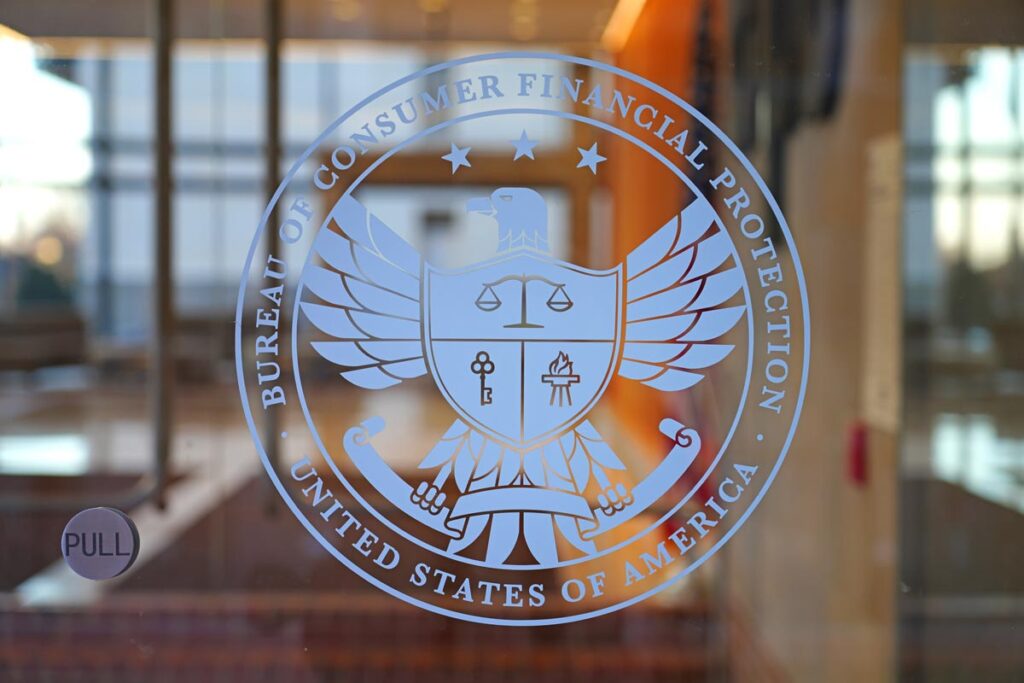Top Class Actions’s website and social media posts use affiliate links. If you make a purchase using such links, we may receive a commission, but it will not result in any additional charges to you. Please review our Affiliate Link Disclosure for more information.

Consumer Financial Protection Bureau constitutionality overview:
- Who: The U.S. Supreme Court said it will take on a case that questions the constitutionality of the Consumer Financial Protection Bureau and may threaten the existence of other agencies, as well.
- Why: The case questions whether the way the CFPB is funded is constitutional, since it is not paid for with annual appropriations from either Congress or itself.
- Where: The CFPB is responsible for overseeing consumer protection nationwide.
The U.S. Supreme Court has agreed to tackle a case that will consider the constitutionality of the Consumer Financial Protection Bureau (CFPB) and potentially threaten the existence of a number of other federal agencies, including the Federal Reserve.
The case stems from a decision made by a three-person panel on the 5th Circuit Court of Appeals, which ruled the funding for the CFPB was unconstitutional because it comes from the bank-fee funded Federal Reserve, NPR reports.
The 5th Circuit reportedly decided that, even though the CFPB regularly reports to Congress and goes through frequent audits, its funding must be appropriated every year by Congress or the agency, lest everything it does be considered unconstitutional.
The Supreme Court’s decision could also have an effect on other agencies similarly not funded by annual congressional appropriations, including the Federal Reserve, the U.S. Postal Service, the U.S. Mint and the Federal Deposit Insurance Corp., NPR reports.
Biden administration writes brief to Supreme Court comparing CFPB funding to that of Social Security, Medicaid
The Biden administration has reportedly chimed in on the case by writing a brief to the Supreme Court that notes that programs like Medicaid and Social Security are also paid for by mandatory spending, rather than annual appropriations.
Elizabeth Prelogar, the Biden administration’s solicitor general, wrote that the case is the first time in the history of the country that a court has determined Congress “violated the Appropriations Clause by enacting a law authorizing spending,” NPR reports.
The Supreme Court is reportedly not set to hear arguments for the case until next term, making a decision unlikely to come before 2024.
Last month, the CFPB proposed a new rule that would be aimed at clamping down on excessive credit card late fees, with the bureau arguing such fees cost American families around $12 billion each year.
Do you believe the Consumer Financial Protection Bureau is constitutional? Let us know in the comments!
Don’t Miss Out!
Check out our list of Class Action Lawsuits and Class Action Settlements you may qualify to join!
Read About More Class Action Lawsuits & Class Action Settlements:















19 thoughts onSupreme Court to consider constitutionality of Consumer Financial Protection Bureau
if wearing a suit for big corporations gives you the title for stepping on the people who place them there. it’s time to bring them down hard.
it must stop
add me please
Add me
I’ve had great experiences with CFPB especially when reporting credit reporting agencies such as trans union and equifax for violations. After raising concerns while employed at a Fortune 500 corporate retail bank I was terminated. The bank is a private retail bank that handles major retail credit cards such as paypal, Lowe’s, Belks, Olive Garden, etc. I felt like I was being targeted by partners of this bank. My Ipp address was blocked from sites such as old navy, JC Penny, etc. My credit report started reflecting accounts that was well over 7 years old along with accounts that where removed within the appropriate timeframe and re-added under different collection agencies after 7 years. Reports that did not belong to me appeared in the report along with open accounts being reported twice within one billing cycle. After disputing the reports through credit karma, trans union & equifax blocked all access to my online profile. Credit karma demanded that I reach out to the credit bureau’s, which I couldn’t because my online profile appeared as if it never existed. I requested password resets in which the request never generated to the email address that was listed on file when I created the equifax and trans union accounts. They where horrible and became my worst enemies. Equifax and transunion demanded my mailing address along with more personal information and refuse to help me with reporting the issue. I reached out to the CFPB Who then reached out to the bureau’s. Afterwards the reports where removed from my credit report.